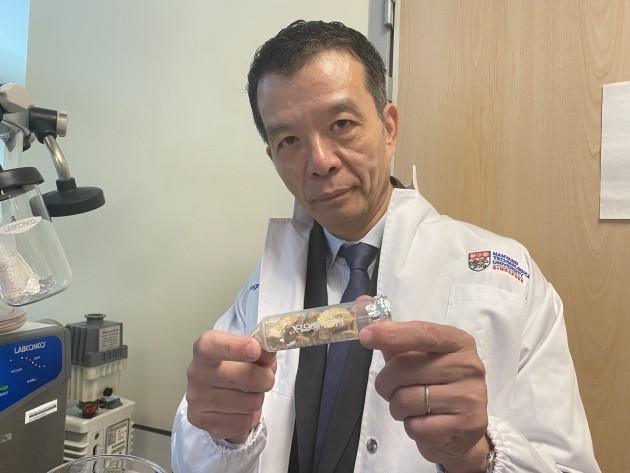Scientists at the Nanyang Technological University, Singapore (NTU Singapore) have developed a sustainable and more effective technique for making lactic acid by using discarded jackfruit seeds.
In 2022, approximately 1.5 million metric tons of lactic acid were manufactured worldwide. Lactic acid plays an indispensable part in the industrial production and preservation of food, and is used the manufacture of food staples such as bread, yoghurt, cheese, kimchi, sauerkraut, and pickles.
Lactic acid is added to dairy products for a tangy taste, controls acidity in jams and canned fruits, and extends the shelf life of packaged meat products. In baking, lactic acid conditions dough for better texture and volume. Lactic acid also helps in emulsification of dressings and sauces and maintains vibrant colours in fruits and vegetables.
The NTU-developed method is cheaper and more sustainable than existing industrial methods as it requires fewer chemicals and processes, produces negligible amounts of by-products, and reduces food waste by using unwanted jackfruit seeds.
Current industrial methods to produce lactic acid are costly as they typically involve fermenting raw materials such as sugarcane, corn starch and beetroot sugar, which have become more expensive due to the increasing scarcity of farmland, natural disasters, and rising inflation.
Industrial methods also result in large amounts of by-products, such as gypsum, which release greenhouse gasses when not disposed of properly.
Jackfruits are increasingly popular in diets worldwide, with their flesh, which resembles meat in both taste and texture, being made into meat substitutes. However, its seeds, which make up nearly a fifth of the fruit’s total weight, are thrown into landfills

NTU Food Science and Technology (FST) programme director professor William Chen said, “Our jackfruit seed-based method to produce lactic acid is another success for NTU in finding new uses for products that would otherwise be left to waste. Upcycling these products to cultivate lactic acid, an indispensable component for nearly all the food we eat, is an opportunity for enhancing processing efficiency in the food supply chain, while addressing two main pressure points for the food industry – rising costs of production and waste management.”
Freeze-drying and probiotics
To produce lactic acid from jackfruit seeds, the NTU scientists first washed the seeds, before adding sodium hydroxide at room temperature. This is a common process to remove skins from fruits and vegetables for canning, before freeze-drying the seeds and blending them into a powder.
They then added lactiplantibacillus plantarum, a ‘good’ bacterium that is commonly found in probiotics, to the jackfruit seed powder. It takes about two days to break it down into sugars and lactic acid, the latter of which is later extracted during a filtration process.
“We are confident that our technique could become a powerful tool for manufacturing companies to produce lactic acid. On one hand, it already uses several common production techniques that are already in use in food processing facilities, such as freeze-drying, starch filtration, and the extraction of lactic acid. On the other hand, the feedstock of our lactic acid is a ubiquitous unwanted product – jackfruit seeds.
“It also has a much lower cost than current feedstocks, corn and beetroot starch, and the usage of a waste product would reflect well on corporations as they strive towards sustainability goals. A necessary difficulty, however, would be getting the jackfruit seeds to the lactic acid producers, but that could be easily addressed by making some adjustments in the food supply chain,” said Chen.
The NTU team will be working on optimising their lactic acid production method to further improve its yield and quality. The researchers also plan to scale up their production process through collaborations with food and beverage partners.






